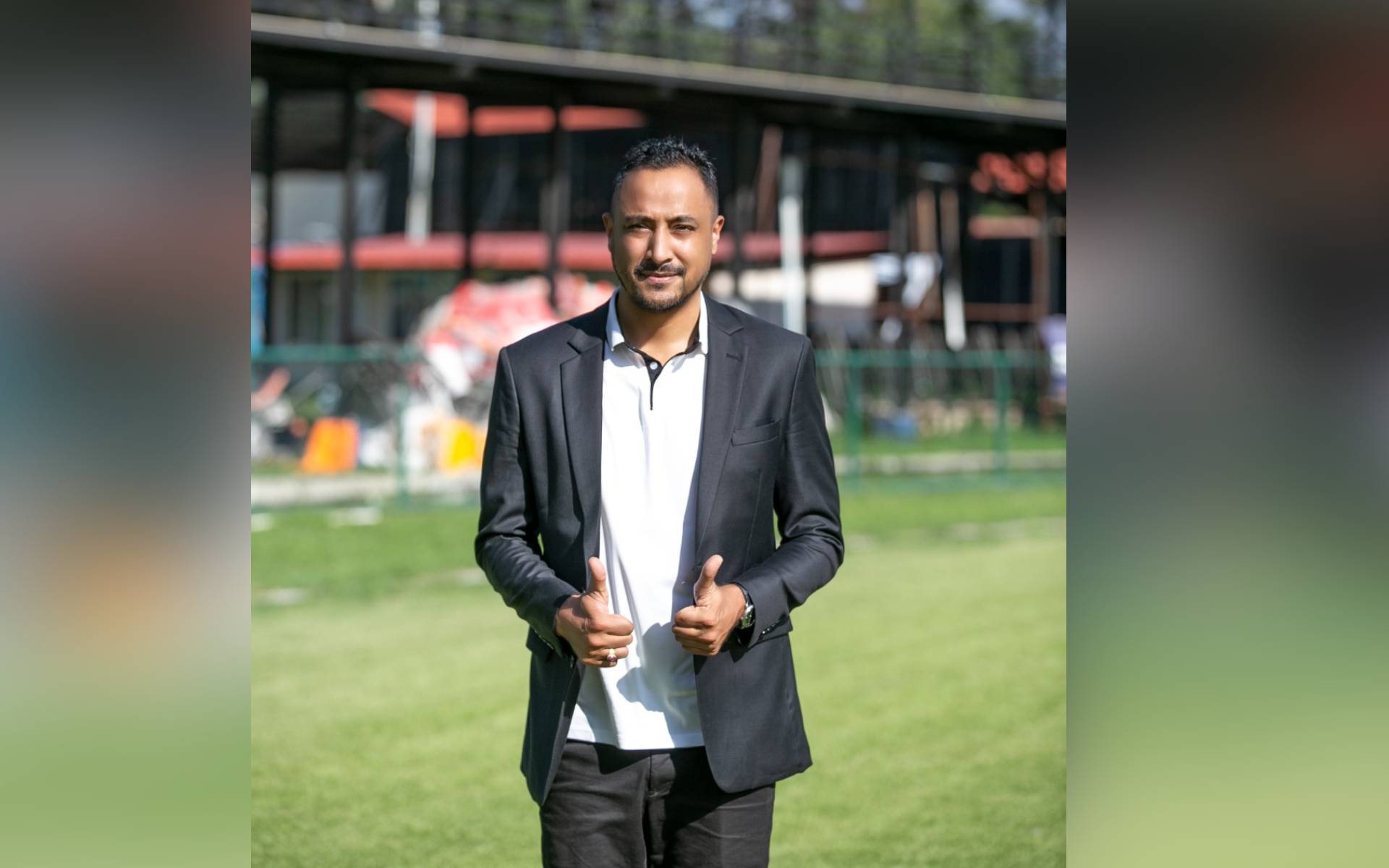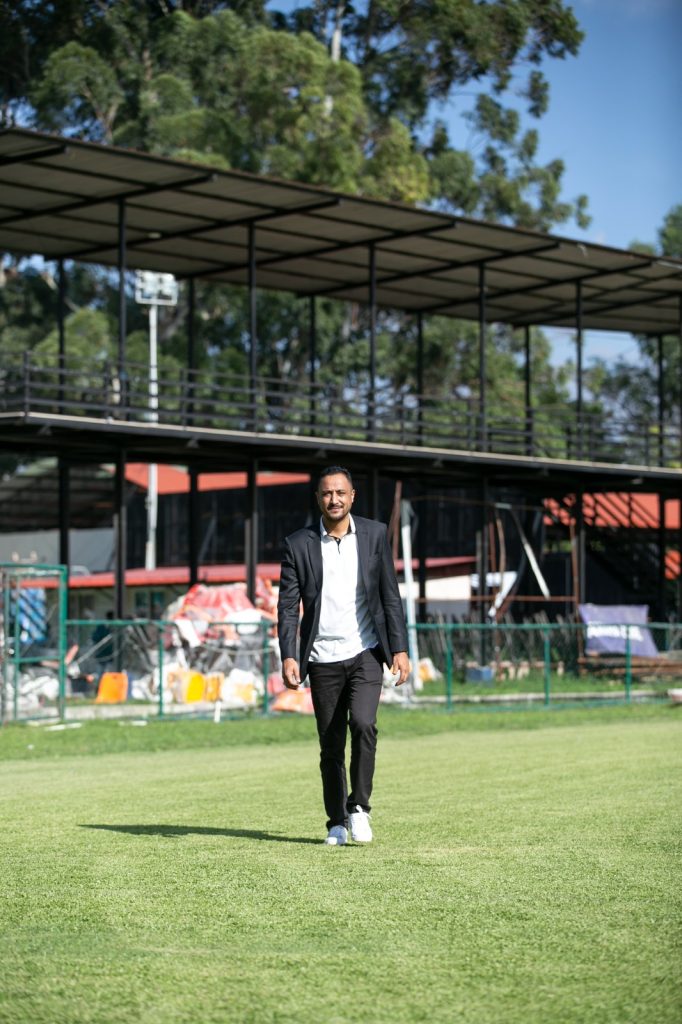
Paras Khadka is more than a name in Nepali cricket. He is a legacy. The former captain, who once carried the nation’s cricketing hopes on his shoulders, now continues to shape its future from the boardroom as the Secretary of the Cricket Association of Nepal (CAN).
Back in the early 2010s, when Nepali cricket was battling administrative bans and uncertainty, Khadka led the national side with purpose and pride, guiding them to one success after another. His leadership not only revived Nepali cricket but also laid the groundwork for its modern rise.
Today, that vision seems to be bearing fruit. Under a new generation of leaders, Nepal recently scripted history by defeating the two-time world champions West Indies 2–1 in their first-ever bilateral T20I series, held in Sharjah. The victory not only showcased Nepal’s growing quality and depth but also marked a defining chapter in its journey toward becoming a true cricketing force.
Speaking with The Diplomat Nepal, Khadka reflected on the landmark win, the evolution of the sport since his playing days, and his ongoing mission to build a stronger foundation for Nepali cricket.
1. How do you see Nepal’s historic series victory over West Indies?
This is incredible because, first of all, to organize the series, we at CAN took on a lot of challenges. Even though we were struggling financially, the willingness to play from various countries, alongside the performance our boys showed, has opened many opportunities for us in the field of cricket. We were there during the Asia Cup, Asian Cricket Council, ICC, and many such events, where even World Cricket has responded, because it is not easy to beat test-playing countries. However, the cricket we played and the benchmark that the younger generation of cricketers is setting is a great achievement for us—to beat a test-playing country in a bilateral series, and that too on a foreign ground.
2. What will be your and CAN’s next step to build Nepali cricket?
National team members are pretty much aligned and busy, but we have to remember that we are very emotional and get distracted, too. The reality is that the boys are also putting a lot of effort and preparation into what is happening at the moment.
Next is focusing on strengthening the structure and management of district-level tournaments, producing cricketers, and providing significant exposure to the top 20 or 30 cricketers, such as various training conditions for the batsmen and training the bowlers as well. The most important thing right now is to look at the overall impact on people within and outside Nepal; everyone wants to be a part of it. This is our current achievement, and we need to continue growing this.
Moreover, if we look at the on-field performance, the young team is trying its best; still, there are a couple of levels to reach before becoming a complete team. This team has all the ingredients; we just need to accumulate them and create a strong and consistent unit without being too emotional.

3. As a former captain of Nepal, you have contributed a lot to Nepal cricket, from the T20 World Cup tournament to achieving One Day International status. How do you see the contributions you have made to Nepali cricket in the past?
Now, in the past, I think I was lucky that I got the chance to play cricket alongside two different generations: today’s present generation and the past generation of cricketers. Playing for Nepal during that transition, from a personal level, it wasn’t about me—it was about the team, and it always will be. But I got to lead this great bunch of cricketers whose dedication and passion are what the new generation is now carrying forward. We all felt so proud seeing the young team and Nepal beat the test-playing country, the West Indies, on foreign ground. All of our years of dreams, wishes, investment, dedication, and sacrifices have led us to where we are today, and we hope to keep going.
4. As a player-turned-official, now Secretary of the Cricket Association of Nepal, how would you differentiate your role?
I think, as a cricketing body and as an institution, we have to move this forward. So, we have taken decisions with perspectives that allow us to move forward through a decision-oriented plan for the betterment of Nepali cricket. From our domestic calendar, the international calendar—women’s cricket, the World Cup Qualifier, last year’s Nepal Premier League (NPL), and the economic impact we felt from it—CAN is doing whatever it can, even if our resources are limited. I think, for me, all of this combined as the Secretary of the Cricket Association of Nepal (CAN) is about CAN trying to create a benchmark. It is different from playing on the field, but again, on a personal level, my life has always been about accepting challenges, overcoming them, and finding solutions to problems. That is how I look at it—looking at what happened in the past while moving towards what’s next. So, I am just trying to move Nepal Cricket forward in every capacity we can as an institution.
5. Lastly, what message would you like to give ICC, ACC, and other friendly cricket boards around the world?
ICC and ACC have been supremely supportive. We have to understand that the more our cricket improves on the field, the more our responsibilities increase as well. We put on a show in Sharjah, UAE, where we invited the West Indies and managed to beat them too. It feels strong that countries around the world got the message that Nepal is an upcoming cricket nation. So, we have to consistently repeat such performances. It took us 10 years to be a part of the T20 World Cup, so this year we believe in our team.